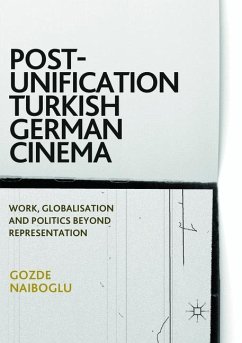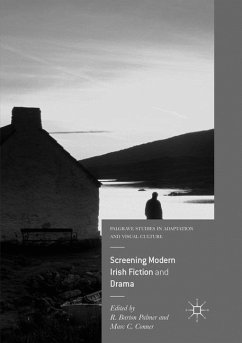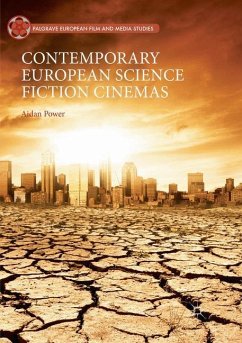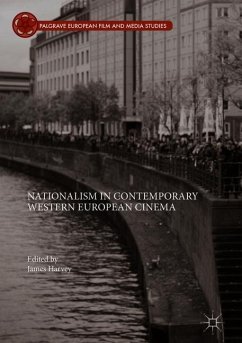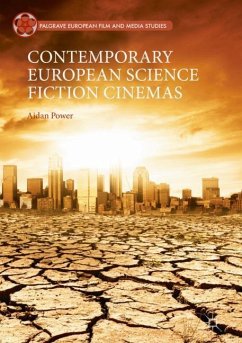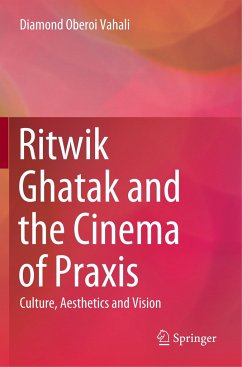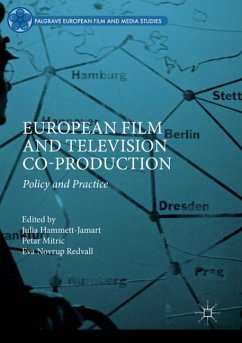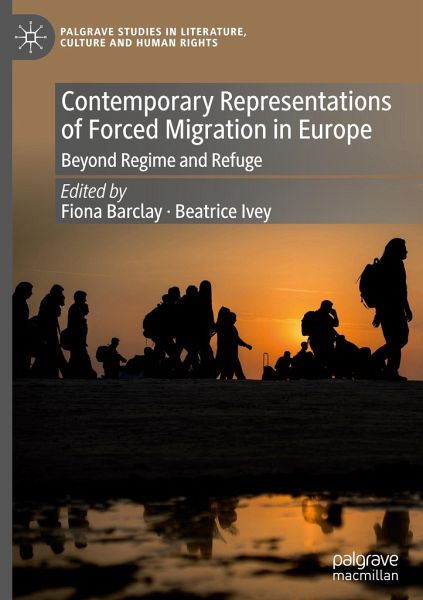
Contemporary Representations of Forced Migration in Europe
Beyond Regime and Refuge
Herausgegeben: Barclay, Fiona; Ivey, Beatrice

PAYBACK Punkte
53 °P sammeln!
This book engages with current debates around refugeedom by examining cultural production that represents and interrogates the construction of refugees and the refugee experience on the borders of contemporary Europe. The refugee subject is produced by discursive regimes and border practices inherited from colonial projects that construct the diametrically opposed concepts of citizen and refugee, and their attendant administrative sub-categories. In the early twenty-first century these categories have been strengthened by the politicisation of forced migration and the hardening of 'Fortress Eu...
This book engages with current debates around refugeedom by examining cultural production that represents and interrogates the construction of refugees and the refugee experience on the borders of contemporary Europe. The refugee subject is produced by discursive regimes and border practices inherited from colonial projects that construct the diametrically opposed concepts of citizen and refugee, and their attendant administrative sub-categories. In the early twenty-first century these categories have been strengthened by the politicisation of forced migration and the hardening of 'Fortress Europe'.
While the predominant response to the increasing numbers of refugees seeking asylum in Europe has been to harden the borders (regime), on the one hand, or to stress the common humanity of those displaced (refuge), on the other, this volume argues that both approaches result in refugees becoming objectified, othered, and abstracted as vectors ofexile. It explores what recentcultural production can achieve in engaging with and representing issues of dispossession, detention and resettlement, and probes the limits of artistic potential to mediate the refugee experience. It examines transnational approaches to cultural production that both occupy and exceed the borders of Europe, with a focus on borderscapes, spaces of detention, and (neo-)colonialism. Bringing together original contributions from an international range of scholars, it analyses contemporary textual and visual representations of forced migration to argue that other forms of solidarity and hospitality towards refugees in Europe and beyond must be possible.
While the predominant response to the increasing numbers of refugees seeking asylum in Europe has been to harden the borders (regime), on the one hand, or to stress the common humanity of those displaced (refuge), on the other, this volume argues that both approaches result in refugees becoming objectified, othered, and abstracted as vectors ofexile. It explores what recentcultural production can achieve in engaging with and representing issues of dispossession, detention and resettlement, and probes the limits of artistic potential to mediate the refugee experience. It examines transnational approaches to cultural production that both occupy and exceed the borders of Europe, with a focus on borderscapes, spaces of detention, and (neo-)colonialism. Bringing together original contributions from an international range of scholars, it analyses contemporary textual and visual representations of forced migration to argue that other forms of solidarity and hospitality towards refugees in Europe and beyond must be possible.







